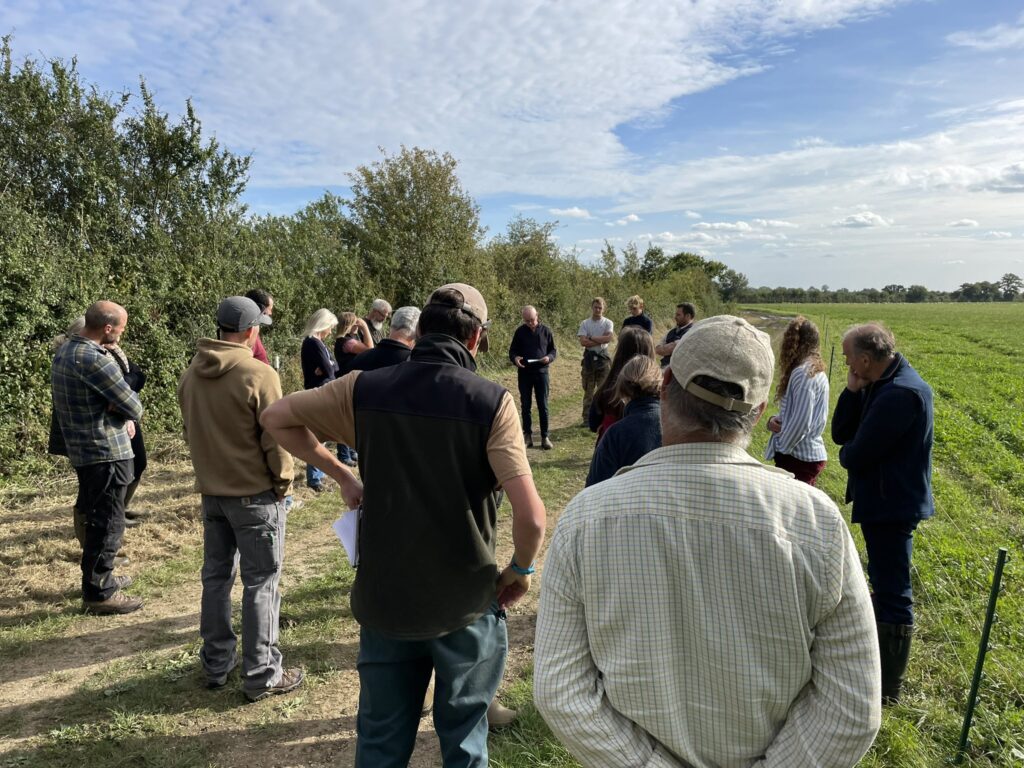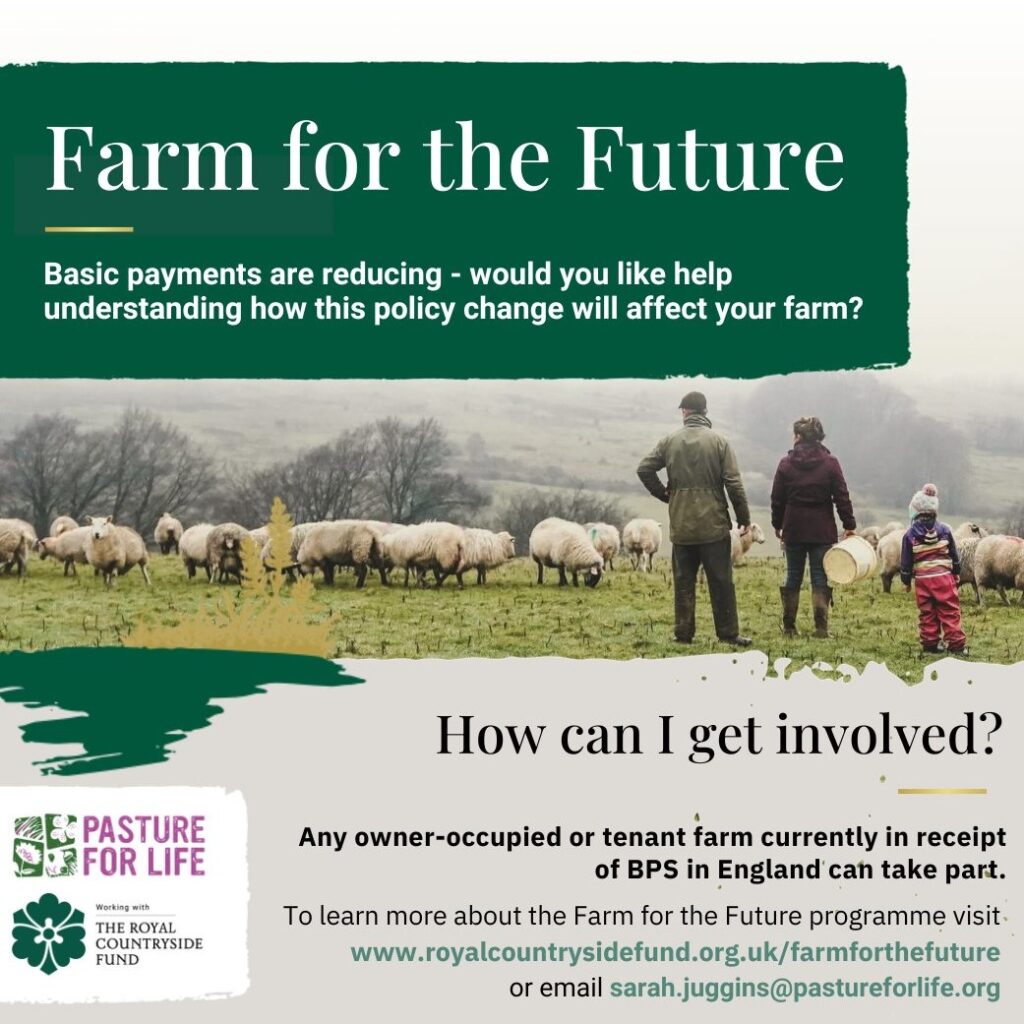Insights from the “Farm for the Future” programme welcome meeting

Project Manager Sarah Juggins reports
At a recent Welcome Meeting of the Royal Countryside Fund ‘Farm for the Future’ programme held in Uffington, near Stamford, the gathered participants enjoyed a stimulating and challenging talk by PfL’s very own Hannah Thorogood and Liz Genever.
The Welcome Meeting is the first in a series of workshops that are being delivered to PfL and non-PfL livestock farmers as part of the Defra emphasis on building resilience within farming. It is free, and for those not already PfL members, it offers a year of free membership of PfL.
Led by Liz and Hannah, the group chatted about their own farming operations, the challenges posed to the entire sector and the personal issues they faced. Using post-it notes to record their thoughts, the group discussed a whole range of subjects in an open, frank and supportive manner. There was a huge range of experience in the room, from new entrants to experienced stock people; from agricultural students to lecturers in farming.
Despite the wide range of experiences, there was a lot of common ground. The challenges posed by uncertainty in the sector; frustration at the low value placed on food by supermarkets; the lack of recognition for farming as a career in the education sector; confusion over how to best balance food production and environmental management; the issues will be recognised by anyone working in agriculture at the moment.
From my perspective as an observer, the thing that struck was a real hunger for collaboration. Every member of the group wanted to stress that a silo mentality was the last thing they wanted. Sharing knowledge, sharing machinery, sharing concerns – just the chance to sit in a room and hear from other people how they were addressing issues was a cathartic exercise in its own right.
This is light years away from preconceived ideas about farmers. The days of a farmer growing the hedges high so neighbours couldn’t see what was growing in the fields are well behind us. The conversations around the room showed that everyone was willing to share – maybe not every idea – but certainly a fair amount of knowledge and expertise.
All of which is borne out by the growth in cluster groups. Farm cluster groups are springing up all over the country, with farmers getting together to talk to their neighbours about shared projects and schemes. Much of this is driven by environmental initiatives. As one farmer put it: ‘just because my boundary stops at the farm gate, nature doesn’t.’
It is now common to see farmers working together to ensure a hedge line or a margin continues from one farm to the next. Farmers who share a riverbank will work together to create a long buffer strip along the length of the river.
From the cluster groups, new ideas and new possibilities spring forth. One farm may not be able to afford a new piece of min drill equipment but by sharing the cost with a neighbour, that becomes possible.
While our East Midlands RCF programme participants are not a recognised cluster group, many of the qualities of collaborative working will be evident as the group comes together over the coming months. With the skilful leadership of Liz and Hannah that process was starting during the first event, with people talking about how they could help each other. That bond between the members will only get stronger.
While we are very proud of the programme we have put together for the RCF Farm for the Future programme, with a great set of speakers, some fabulous venues and cutting-edge topics, I suspect the greatest value will come from the interactions and relationships that are forged in the ‘down-time’, over a cup of tea, a lovely lunch or on the way back from a farm walk.




